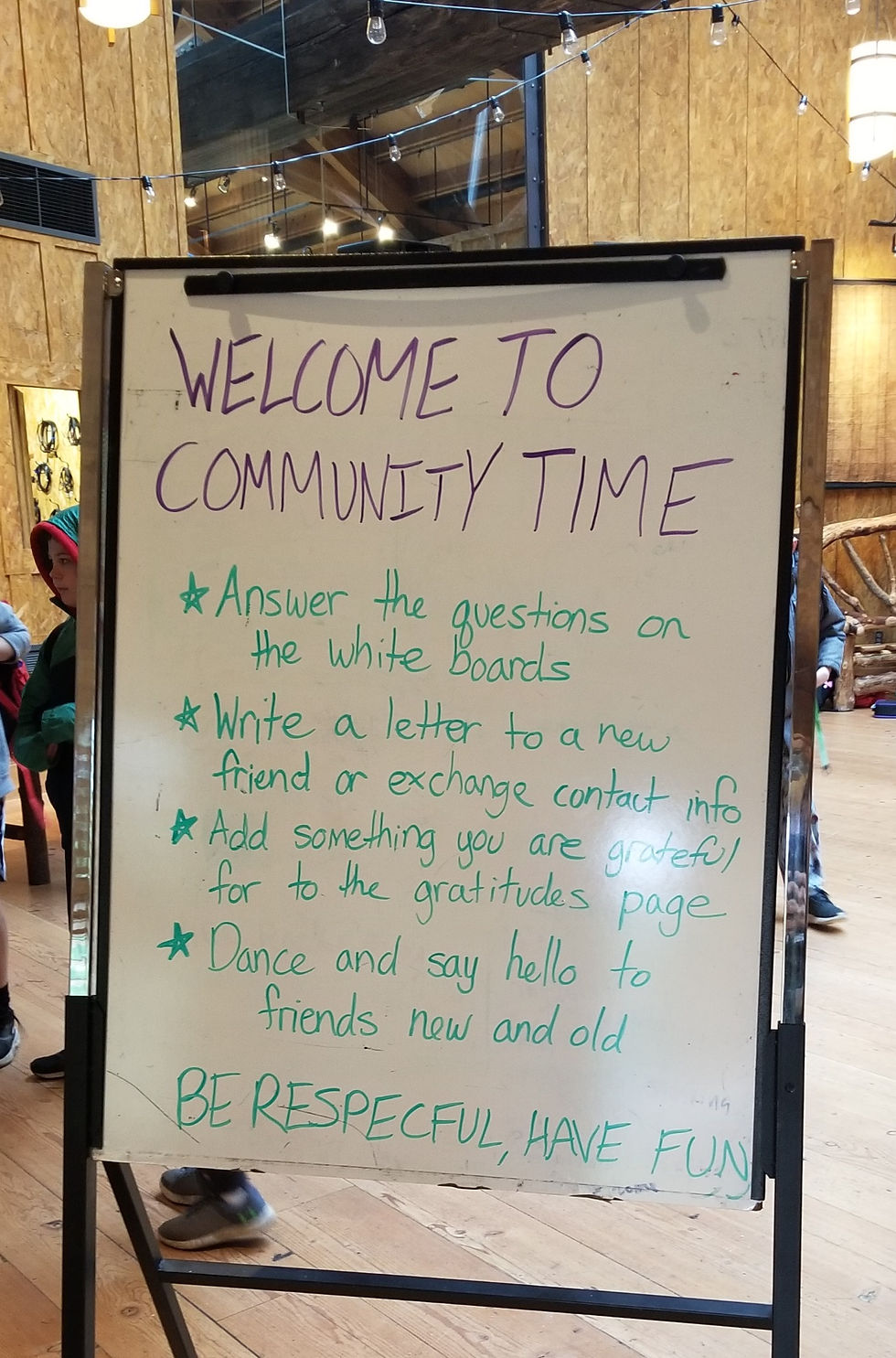Community Matters
- Emily Morgan
- May 1, 2020
- 3 min read

When I started teaching at IslandWood Outdoor School, I was continually impressed by the resources, curriculum, staff support, and infrastructure of the program. I knew I had found a special program, but I still felt like something was missing. As I reflect back on my other teaching experiences - hiking through the redwoods at Caritas Creek, camping with 4th graders during Fieldguides, teaching little ones how to ski at Tahoe - I realized what I missed was the opportunity to foster relationships between students from different communities. Giving students the opportunity to meet new people during their residential outdoor education experience is powerful.
Not just a hello and a name, but truly understanding someone who they did not grow up with and go school with everyday. By getting to know someone from a different community, students are able to build empathy and understanding for others. My hope is that those skills will help them become lifelong learners who are curious and respectful of different ways of living and understanding. Working at Caritas Creek, I facilitated conversations among students who come from the same region, but very different worlds. I would sometimes have groups of students that were half from the wealthiest county and half from the lowest income neighborhood of the Bay Area. This created a clash of culture and variety of experience, but it also created an opportunity for students to build bridges between gaps they did not even know existed.
We would have candid conversations in which students were encouraged to open up about their upbringings, family structures, home life, challenges, and joys. Conversations would build throughout the week and students would open their hearts as they felt more and more connected to the people on our team. I always ended our conversations by asking them to raise their hand if they could relate to an experience of someone else in the group that they had just met. Invariably, they would all raise their hands. They would walk away knowing that they had more in common to relate about than differences that could keep them apart.
The foundations for community building were already woven into the IslandWood program. Field groups were paired with a group from another school; a new program called Engaging Across Boundaries where students from different schools would play a game or complete a science lesson together. This was a step in the direction of students building new relationships, but there was limited time in which the entire camp community could come together as a whole. I know creating loosely structured time for students to explore socializing and meet new people in an informal setting is important in developing their skills as compassionate, empathetic people.
So my colleague and I invented a new program component called Community Time, a time on the last day of camp where everyone could come together and share time, gratitude, and reflections. Students were encouraged to roam around a large room where the entire camp community was playing bingo, contributing reflections on white boards, and sharing gratitudes on butcher paper. They could also exchange contact information with new friends, write a letter, or give a thank you note. It was a time when the whole community could come together and commemorate their week; which for many students is a once in a lifetime experience. It was successful and the another step in moving towards a program that is oriented around intentional community building and meeting new people.
I hope to keep encouraging outdoor education programs to foster relationships across communities. Sometimes teachers and chaperones push back, wanting their class and school to bond without the pressures or complications of meeting new people. However, meeting new people and forming new friendships with different people is exactly what builds the social efficacy for students to branch out of their own social bubbles. Meeting new people will strengthen their relationships with students they have known for a lifetime, by giving them the tools to empathize and ask questions that enable them to walk in each other's shoes. It will help them grow into people that do not fear those who are different, but instead approach them with curiosity, understanding, and respect.



Comments